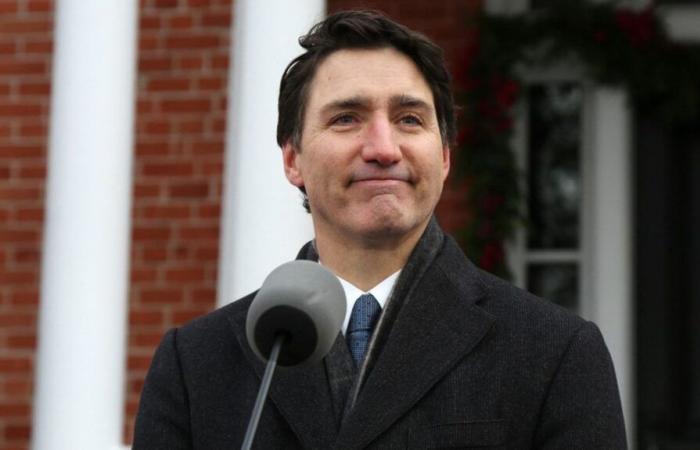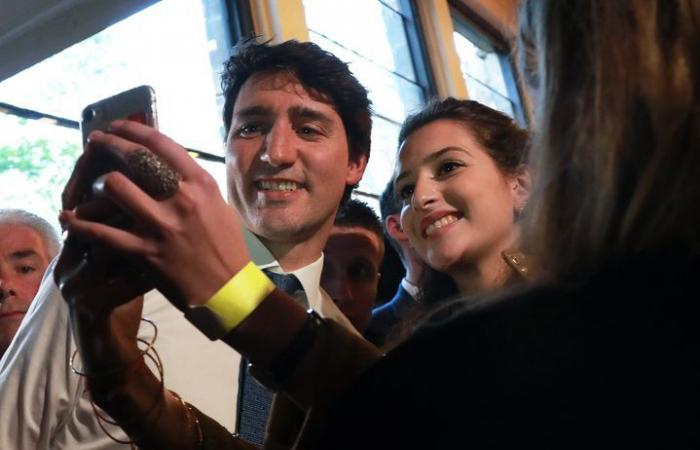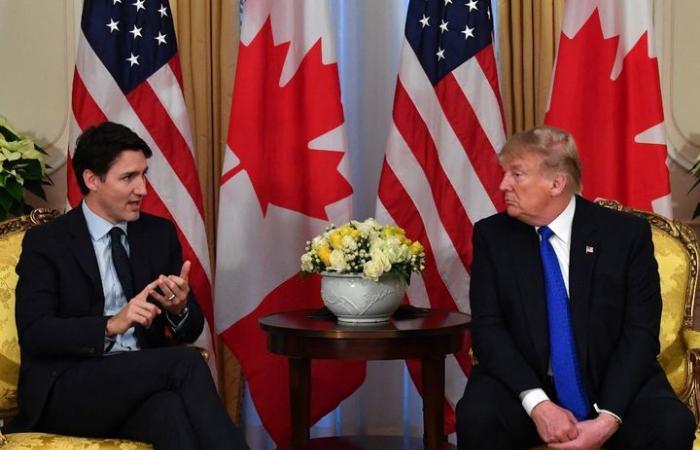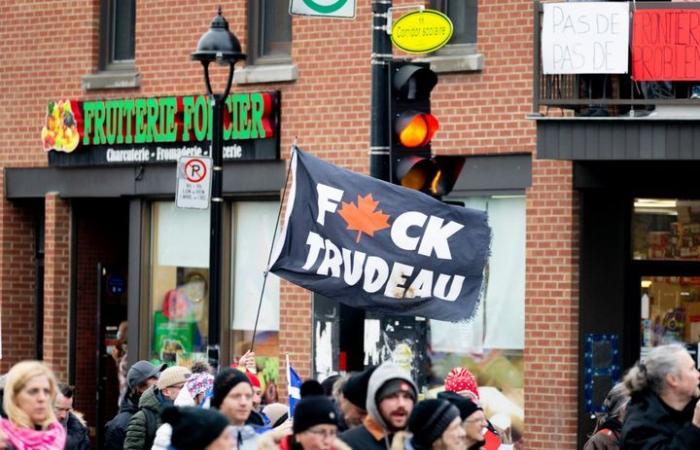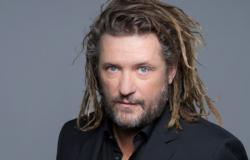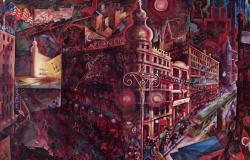“Trudeaumania” is well and truly a thing of the past. Justin Trudeau, Prime Minister of Canada for ten years, announced Monday January 6 that he would resign from his post once his party, the Canadian Liberal Party, had elected a new leader. On reprieve for several months, the leader ended up giving in, discredited in the polls and abandoned by his own camp. Franceinfo looks back on a decade which saw the country's star, the incarnation of modernity in politics, fade and go from enthusiasm to distrust in Canadian public opinion.
2015-2017: the honeymoon
On October 19, 2015, the liberals let their joy burst forth. After almost ten years in power, the austere and reactionary Stephen Harper (Conservative Party) was swept away. His executioner ? Young Justin Trudeau, 43 years old. Son of former Prime Minister Pierre Elliott Trudeau, he made a sensational entry into politics, obtaining an absolute majority in the House of Commons. Like Barack Obama in the United States, the MP for the Papineau constituency in Montreal presents himself as a young and glamorous star. He promises “sunny ways” and triggers enthusiasm.
The answer “Because it’s 2015”to explain gender parity and justify better representation of minorities within his first government, made an impression. His trips abroad sometimes resemble the trips of a rock star, with young girls lining up for a selfie.
He is then seen as an ecological, modern leader, defender of the rights of refugees and indigenous populations. In July 2017, while Donald Trump was in the White House, the American magazine Rolling Stone wonders on the cover : “Why can't he be our president ?” To the dismay of conservatives, he shows contrition on behalf of his country, apologizing to the indigenous population or the LGBT community.
2018-2021: time for doubts
Three years after coming to power, the Prime Minister's charisma is no longer enough and criticism is becoming more and more vehement. Environmental defenders express their anger at certain decisions, in particular to favor fossil fuels produced in the country. “For many environmentalists, in Canada as elsewhere, Justin Trudeau is denying through this maneuver his often expressed desire to fight head-on against climate change”summarizes the Canadian researcher Jocelyn Coulon in a column published in June 2018 in The World.
Justin Trudeau also renounces his flagship promise to reform the voting system first-past-the-post, pure and simple reproduction of the British system. On the other hand, the Liberals passed, as they had committed to, a bill legalizing the consumption of cannabis, a decision criticized by the conservatives, who also criticized its management of finances and the deficit.
On the international scene, Trudeau's star is also fading. During an official trip to India in February 2018, a diplomatic incident broke out, when Canadian diplomacy had to quickly cancel the invitation extended to a Sikh extremist, sentenced to twenty years in prison for the assassination attempt in 1986 in Canada from an Indian politician. The Prime Minister's relations with Donald Trump – who is then serving his first term in the White House – are particularly complicated. During a G7 summit, the American president unleashes his blows, calls him “weak” et “dishonest” after criticism from Ottawa on Washington's trade policy.
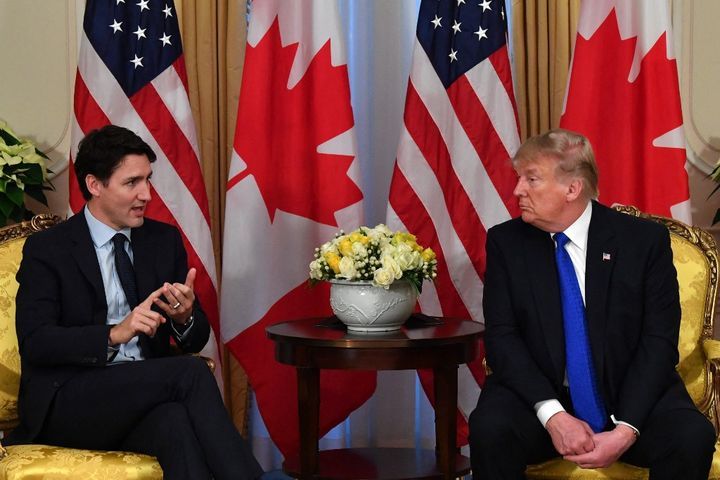

In 2019, in the midst of his re-election campaign, Justin Trudeau's image was seriously damaged when a photo, dating from 2001, showing him dressed in an Aladdin costume, his face covered in black makeup, was unearthed by the Time. “At the time, I didn’t think it was racist. I recognize today that it was and I am deeply sorry”he reacts.
Doubts arise on election night, October 22 : Justin Trudeau retains power, but loses the absolute majority. On the other hand, the impossible alliance between the opposition parties (conservatives, left and Quebec independence) still offers him a certain stability in power.
The Covid-19 crisis then gives him the opportunity to present himself as the protector of the country. His aid plans for the unemployed and businesses convince the population. Three-quarters say they agree with his management of the pandemic in spring 2020, then reported TV5 world. It is “unexpected popularity”judge, in L’Opinionthe Canadian political scientist Frédéric Boily.
Justin Trudeau tries to take advantage of this the following year by calling early elections in September 2021. Result : a vote which in no way modifies the forces present. In the meantime, the Prime Minister found himself entangled in an embarrassing scandal-filled affair. HASaccused of having violated the law on conflicts of interest when awarding a major contract to an association which paid members of his family, he was finally cleared in May of the same year by the Commissioner for 'ethics.
In the end, the Liberal Party gained five seats but remained in the minority. A three-year agreement with the New Democratic Party (left) allows him to see this coming, but the Prime Minister knows he is under surveillance.
2022-2024: crises, until the fall
In the following weeks, Justin Trudeau's government faced a difficult economic situation. Like elsewhere in the world, Canada is facing galloping inflation. Added to this is the housing crisis, as well as supply and labor shortages. One million vacant positions are recorded in March 2022 (a record), particularly in health services and social assistance, underlines -.
Vaccination against Covid-19 earned the leader another crisis, at the start of 2022, while the country ended measures to deal with the pandemic later than others. The streets of Ottawa were blocked for several weeks by the “Freedom Convoy”, a movement of demonstrators against the government's health policy. Justin Trudeau's choice to use the law on exceptional powers to end the blockages is criticized.
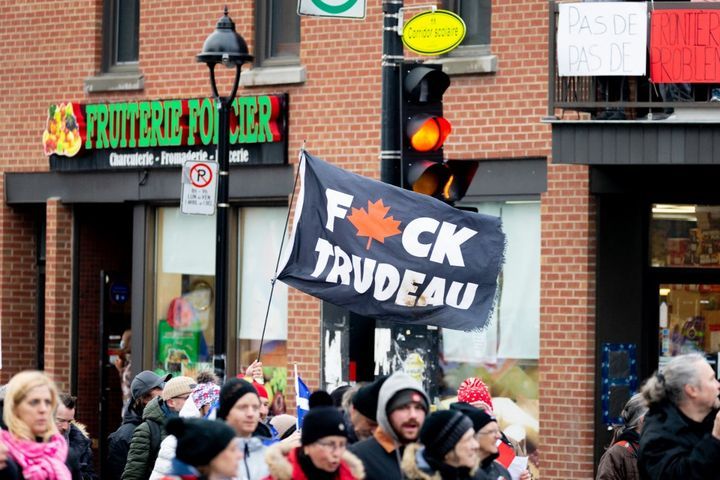

Opposite, the advent of a new leader of the Conservative Party, the populist Pierre Poilievre, does not help the liberals' affairs. Month after month, the polls are getting worse and worse. 2024 is turning into an “annus horribilis”. His party suffered bitter failures during by-elections. Above all, at the end of the year, the left ended the agreement made with Justin Trudeau, exposing him to a motion of censure that the conservatives dream of.
The increasingly strong blows from Pierre Poilievre mix with the distrust of Justin Trudeau's own camp, alarmed by catastrophic polls, which promise a conservative tidal wave. At the same time, Donald Trump's victory in the United States and the billionaire's promises to increase taxes on Canadian products are weakening what remains of confidence in the Prime Minister's ability to properly manage the country's affairs.
“He surely stayed in power for a year too long and so it ends up being a bit of a fishtail”estimates Geneviève Tellier, professor of political science in Ottawa, to AFP. Defining itself as a “beating”Justin Trudeau repeatedly rejects calls for his resignation, refusing to admit defeat. But thehe departure, on December 16, of his Deputy Prime Minister, Chrystia Freeland, who displays her disagreements on how to manage the economic war which is looming with the United States, acts as a coup de grace. Justin Trudeau resigned on January 6, realizing that he no longer had the trust of his people. For Geneviève Tellier, the disappointment is today all the greater in public opinion as the Canadian leader had “so promised”.

